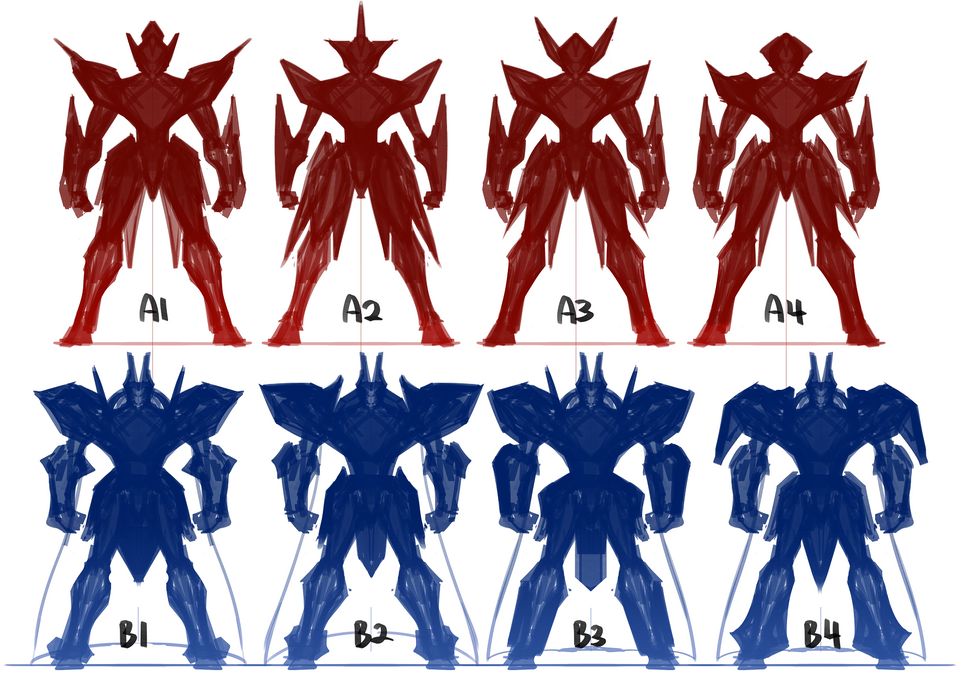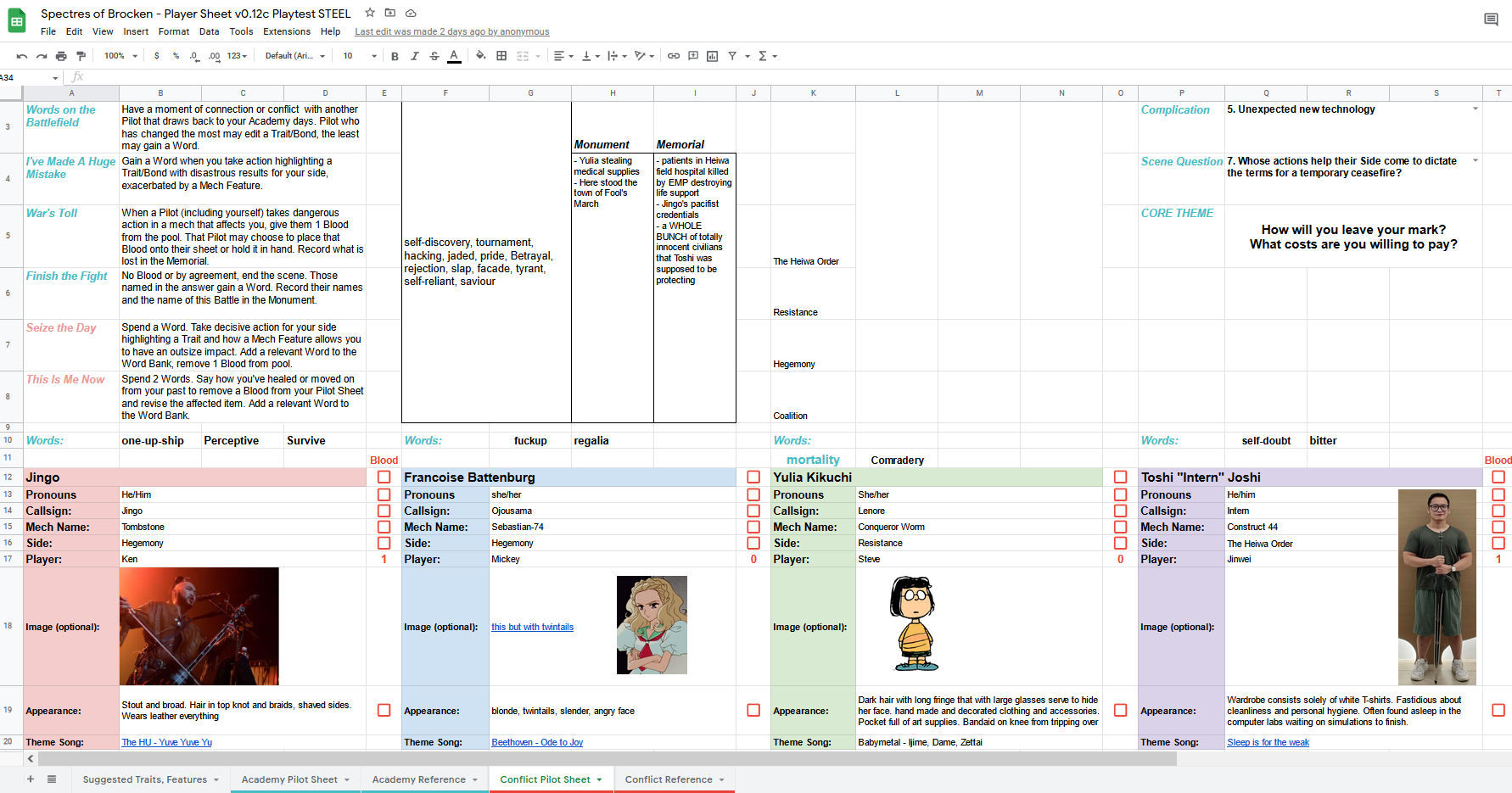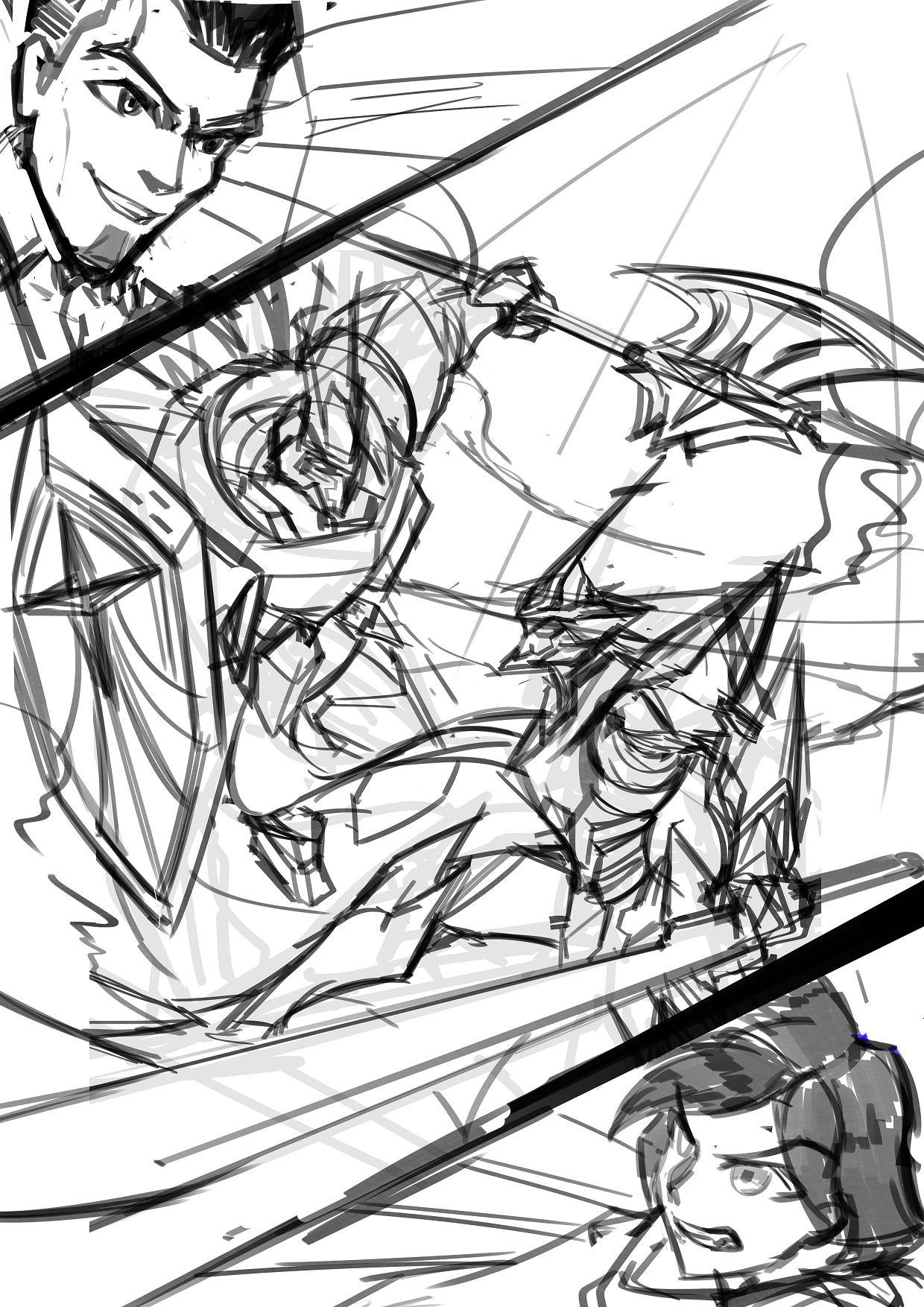Playing, Testing, Testplaying, Playtesting.

Happy Friday, fools and horses!
I just finished a 3-session playtest of Spectres of Brocken this week. It's been good to come back to the game after some time away, since my last playtest of it was back in February.
It's also the first playtest of Spectres where I've facilitated but not played a character. It's an interesting space to be in, since I try to keep the game moving along and provide reminders of what moves are available and how the rules interact with other parts of the game while still trying to keep agency and decision-making with the players. I wanted to try and be "hands-off" and see how players took to the game without me "taking part".
I don't think I actually succeeded with this part of the playtest, especially since I'm usually MC-ing this exact group in Beam Saber and found myself falling back into that mode and being a bit more hands-on during scenes and inciting character interactions than I had wanted to be. It's always really good to have playtests where you're not playing (or "not playing" as much as you can) and ideally some where you're able to just observe without providing much input. However, even though I wasn't happy with my own ability to facilitate the game in a "hands-off" manner, I still managed to gain a lot from this playtest.
It has really helped me narrow down areas of the game where instructions or explanations are unclear, and also see which areas of the game have relied on my own unstated assumptions or ideas of how the game would run, particularly in how much information is needed to start scenes and prompt character action. I realise now how much I've been relying on myself "setting the pace" when setting up scenes and pushing how characters interact and trigger moves, which are all not covered in "the rules". It's just reminding me how much more I need to write and refine to get those ideas across.

This is why I'm a big proponent of playtesting. I think there are many worthwhile goals to playtesting, but the one I keep coming back to is how it provides additional perspectives. This seems an incredibly obvious thing to say: playtesting is putting your game in the hands of others and learning more about the game through your observations on their interactions with the game, so of course additional perspectives are going to be a big focus.
I keep re-learning this lesson whenever I playtest and I'm always humbled when I do. I am a world, but I am not the only world. Every person is their own world. This game I'm trying to make is not just the thing I see it as. It is encoded in something else (the text, the context, the form), and is re-made every time in the play of it, in the intersection of multiple worlds. I catch a new glimpse every time I play, and the playtest is the convenient fiction that allows me to recalibrate and respond.
I love playtesting. So much so that the things I'm proudest of having achieved in my gamemaking journey have been stewarding regular playtest events like Incubator Melbourne (I'm still a little sad that it's gone dormant now) and Playtest Zero. I love meeting other game designers and discussing, tinkering with, and most of all, playing games with them. I don't think you "need" to playtest games for them to be "real games" or that games even need to be "played" to be so. However, I do love playing games, and playtesting is playing games, so I'm always going to want to play games if I can.
Since I ended up writing so much on playtesting, here are some more nascent thoughts on playtesting. Though I stand in their proximity, my relative position to them is not constant, I'm still playtesting them:
- "Playtesting" is a scam. You're just playing the game. The designers are lying to you saying it's "not a real game yet" when we all know that the game you "playtest" is already a real game, just maybe not the same game as the later version they try to tell you is somehow "more real" than the game you played earlier. The "real game" is quite possibly "worse" than the "pretend", "fake", "playtest version" of the game you played. And when you go back to using the "playtest rules" to play the game, you get told that's "not the real game"? What a scam! It's all a scam. All "games" are scams. Game designers are inherently scammers.
- Playtesting is closer to play than game. Game is a stagnant form of playtesting. Games, or more accurately game products, are a dead idea endlessly dug up and resurrected to capture the mercurial playful form of playtesting.
- Tabletop roleplaying games are the most playtested games of all because they are never complete. Every play is a playtest, constantly moving and changing to fit the forms of the players.
- Playtesting is pretending that play isn't real, is playing play, is meta-playing.
- Playtesting is cruel categorization, reduction, capture, hemming in, pinning down of play into games. Reject it.
Ooooooh shit I ended up shitposting about playtesting instead of just Updating You About My Games. Here, uh, have some development and draft work of an illustration for Spectres of Brocken (by @harryych) as recompense.


Draft regards,
Aaron
